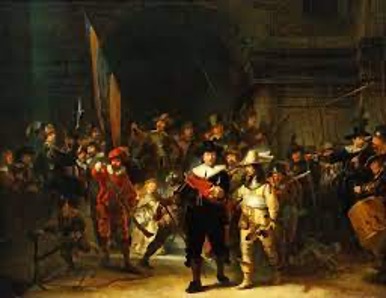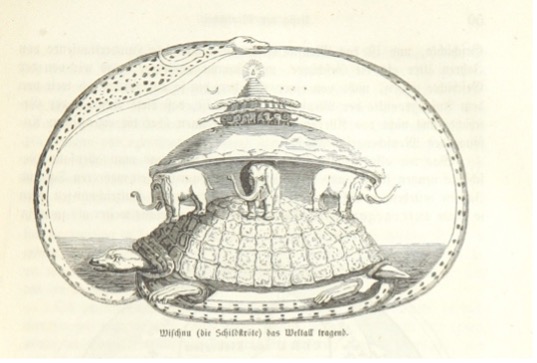“Don’t put your trust in revolutions. They always come around again. That’s why they’re called revolutions.”
Night Watch, Terry Pratchett
Night Watch is the twenty-ninth novel in Terry Pratchett’s Discworld series, which follows several characters in their adventures through the Discworld, a flat planet carried on the backs of five elephants. It is the sixth in Discworld’s City Watch series, which follows Watch commander Samuel Vimes and his (sort of) dedicated staff. Night Watch differs from others in the series, however, as it sends both Vimes and the criminal he is chasing back in time, to an event the City Watch refers to as the Glorious 25th of May. Vimes arrives in the past a few days before the 25th, when police violently repressed peaceful protests across the city, and finds himself in command of a Watch station which includes, among others, a young Samuel Vimes, who has just joined the City Watch.

With this novel, Pratchett interrogates the question of whether individuals can prevent a massacre. Many fantasy novels do not attempt to answer this question, choosing instead to depict epic battles in which whole races are wiped out, families are destroyed, and history is forever altered.[i] In others, battles are stopped before they can start by the “chosen one,” who has faced trial after trial to prevent bloodshed in the final phase of the story.[ii] Night Watch does neither of these things. Samuel Vimes, like the readers themselves, is not the “chosen one”, and cannot stop the tide of violence which occurs on the Glorious 25th of May. He is, however, a member of the City Watch in a position to alter some of the events that he knows occurred when he first witnessed things unfold. He does his best to ensure that neither protestors nor police are harmed in his precinct, and when violence does break out, he makes sure that it is minimal and that any injuries are properly treated. Vimes himself cannot prevent a massacre, but he protects the people that he can.
Pratchett ensures that this choice is not made easy. Vimes is threatened, bullied, and taunted by protestors, fellow police, and authority figures alike. He is put in dangerous situations, has his life threatened, and is faced repeatedly with failure. The control and nonviolence he uses in approaching these situations is hard-fought and often tenuous, but it is effective. Vimes doesn’t rise to taunts, and he doesn’t panic. Rather than approaching protestors and opponents with anger, he leads with love. He talks to protestors, gets to know them, and establishes a bond with them. He is respectful. He makes jokes. And as a result, when he is threatened by sects of angry protestors, fellow protestors with whom Vimes has bonded protect him. When violent Watch members threaten Vimes’s authority, their peers push back. Vimes cares about other people, and the love and care he curates in the face of violence are what saves him.

This care extends beyond care for others: in a self-reflexive, thoughtful way that only Pratchett and the fantasy genre can achieve, Vimes also cares for himself. The start of Night Watch sees Vimes’s wife Sybil about to give birth to their son and depicts Vimes’s own anxiety about this prospect. His own father was absent during his childhood, and he fears that his commitment to his career and righteous anger will negatively affect his own son. Upon being transported back in time, Vimes is arrested by and later put in command of himself, albeit several decades younger and new to the Watch. As the events of the Glorious 25th of May unfold, Vimes must protect and teach his younger self (referred to as Young Sam) how to survive not only in the world of policework, but also as a dedicated and conscientious citizen with a deep sense of morality. Vimes cares for and protects himself, simultaneously protecting and coaching Young Sam in maintaining hope and self-protection in the face of violence. By the time Sam returns to the present day and learns his wife will name their son Young Sam, he has enough experience in caring for and parenting himself in a violent and unpredictable world that he is ready to do the same for their son.
What do you think?
- How might this novel challenge or change definitions of conflict and peace?
- What effect does local, small-scale peacebuilding have on large-scale peace?
- What choices do law enforcement officers have, and what barriers do they face, when trying to minimise violence and ‘keep the peace’?
- How do care and love factor into peacebuilding?
- How can fantasy writing help us explore moral choices and the complex work that goes into keeping and building peace?
If you enjoyed this item in our museum…
You may also enjoy The Brownie of Bodsbeck, Dad’s Army: Pockets of Peace and Humour?, and the tags Care, Empathy, and Dialogue.
If you want to read more about peace in the Discworld, Pratchett’s novels Small Gods, Reaper Man, and Jingo may also be of interest.
Arden Henley, April 2023
[i] See, for example, The Lord of the Rings, particularly The Return of the King.
[ii] Such as in American Gods, The Lion, the Witch, and the Wardrobe, and even some of Pratchett’s other novels.